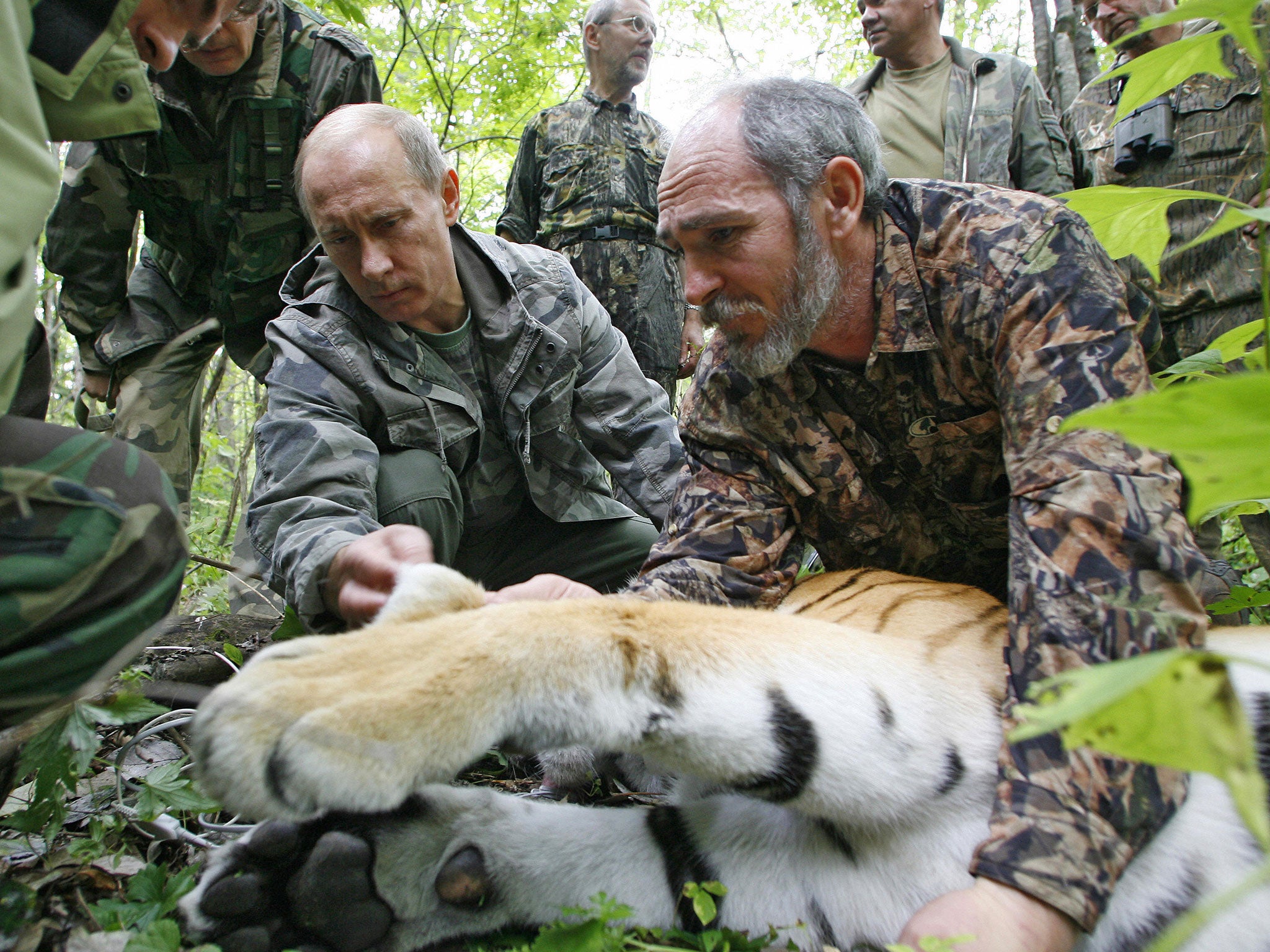Vladimir Putin's tiger facing blame after Chinese goats found with skulls crushed and 'puncture holes the size of a human finger'
Threat to burgeoning Sino-Russian relations

Your support helps us to tell the story
From reproductive rights to climate change to Big Tech, The Independent is on the ground when the story is developing. Whether it's investigating the financials of Elon Musk's pro-Trump PAC or producing our latest documentary, 'The A Word', which shines a light on the American women fighting for reproductive rights, we know how important it is to parse out the facts from the messaging.
At such a critical moment in US history, we need reporters on the ground. Your donation allows us to keep sending journalists to speak to both sides of the story.
The Independent is trusted by Americans across the entire political spectrum. And unlike many other quality news outlets, we choose not to lock Americans out of our reporting and analysis with paywalls. We believe quality journalism should be available to everyone, paid for by those who can afford it.
Your support makes all the difference.A rare Siberian tiger that defected to China after it was released into the wild by Vladimir Putin has now sparked a further challenge to Sino-Russian relations – by killing as many as five goats.
State media in China reported that two goats were found killed with their skulls crushed. Puncture holes “the size of a human finger were clearly visible”, the report said.
Three other goats belonging to local farmers in northeast China remain missing.
Experts have pegged the killings to Ustin, one of three tigers that were fitted with tracking devices and released under Putin’s supervision in a remote part of Siberia in May.
Two of the tigers, Ustin and Kuzia, were observed crossing the border into China in October – sparking fears among residents near China's Taipinggou nature reserve.
Kuzia has already been accused of causing trouble after the 19-year-old cub was blamed for the deaths of five chickens on a farm – prompting officials to say they were prepared to “release cattle” for the tigers to eat.
The diplomatic relationship between Russia and China has been increasingly strong in recent months. Even when the tigers first crossed the border, a Chinese official was quick to say that the two countries had been “working [together]on the protection of Siberian tigers for decades”
Join our commenting forum
Join thought-provoking conversations, follow other Independent readers and see their replies
Comments